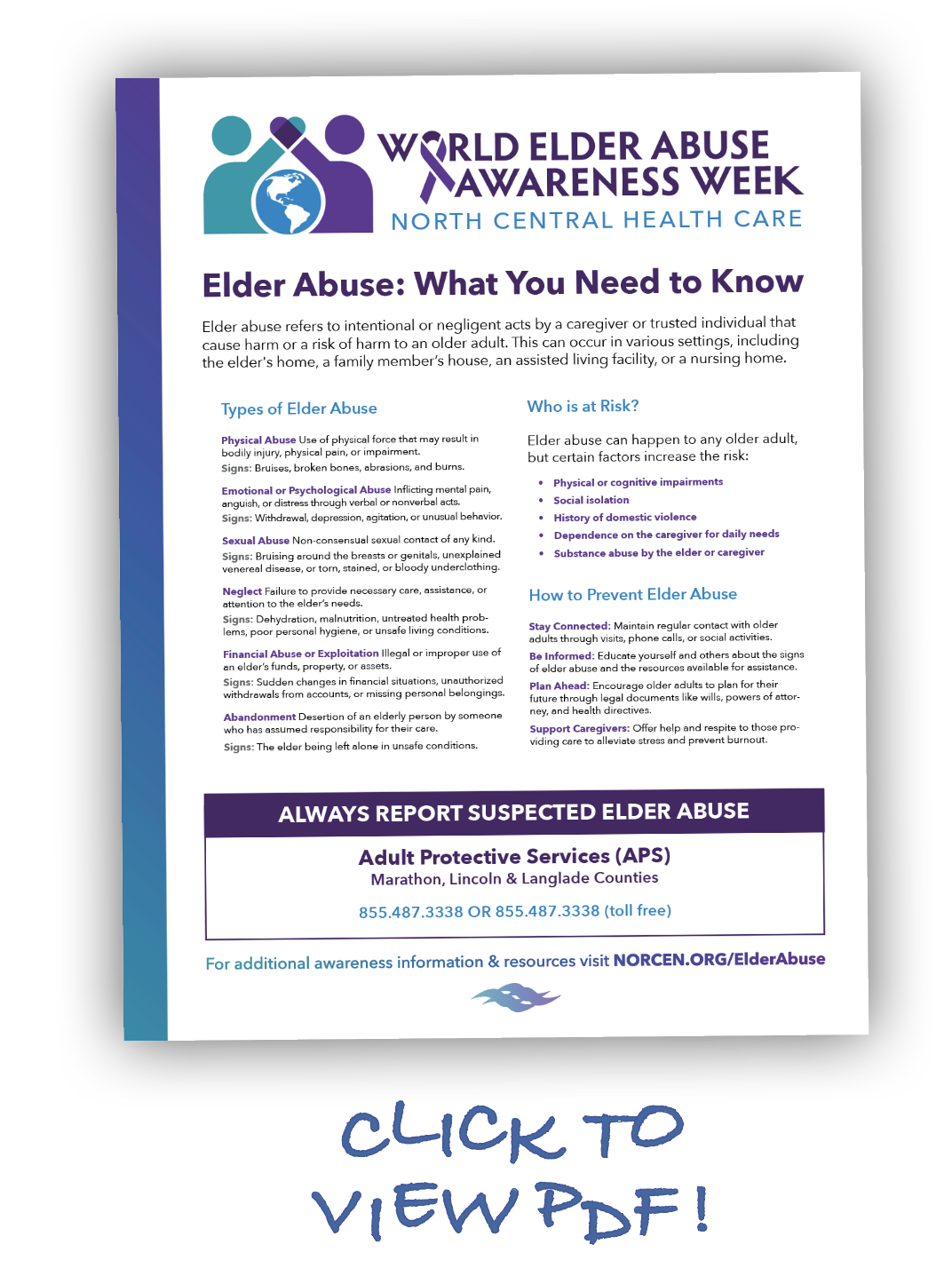What You Need to Know
 Elder abuse refers to intentional or negligent acts by a caregiver or trusted
individual that cause harm or a risk of harm to an older adult. This can
occur in various settings, including the elder's home, a family member’s
house, an assisted living facility, or a nursing home.
Elder abuse refers to intentional or negligent acts by a caregiver or trusted
individual that cause harm or a risk of harm to an older adult. This can
occur in various settings, including the elder's home, a family member’s
house, an assisted living facility, or a nursing home.
Types of Elder Abuse
Elder abuse can take many distressing forms, each with its own warning signs. Physical abuse involves the use of force that can lead to injuries like bruises, broken bones, abrasions, and burns. If you notice these signs, it could be a red flag. Emotional or psychological abuse inflicts mental pain and anguish through verbal or nonverbal acts. Watch for signs like withdrawal, depression, or unusual behavior, which can indicate such abuse. Sexual abuse entails any non-consensual sexual contact, often evidenced by bruising around the breasts or genitals, unexplained venereal diseases, or torn, stained, or bloody underclothing.
Neglect is another form, characterized by a failure to provide necessary care, resulting in dehydration, malnutrition, untreated health issues, poor personal hygiene, or unsafe living conditions. Financial abuse or exploitation involves the improper use of an elder's funds or assets. Sudden financial changes, unauthorized withdrawals, or missing belongings can be telltale signs. Lastly, abandonment is the desertion of an elder by someone responsible for their care, often leaving them alone in unsafe conditions.
Recognizing these signs is crucial for safeguarding our elderly loved ones from abuse. Each form of abuse has distinct symptoms, but being vigilant and informed can make all the difference in protecting the vulnerable.
Elder abuse can happen to any older adult, but certain factors increase the risk:
- Physical or cognitive impairments
- Social isolation
- History of domestic violence
- Dependence on the caregiver for daily needs
- Substance abuse by the elder or caregiver
How to Prevent Elder Abuse
- Stay Connected: Maintain regular contact with older adults through visits, phone calls, or social activities.
- Be Informed: Educate yourself and others about the signs of elder abuse and the resources available for assistance.
- Plan Ahead: Encourage older adults to plan for their future through legal documents like wills, powers of attorney, and health directives.
- Support Caregivers: Offer help and respite to those providing care to alleviate stress and prevent burnout.
Additional Resources from the National Center on Elder Abuse (NCEA):
ALWAYS REPORT SUSPECTED ELDER ABUSE
Adult Protective Services (APS)
Marathon, Lincoln & Langlade County
715.841.5160 OR 855.487.3338 (toll free)